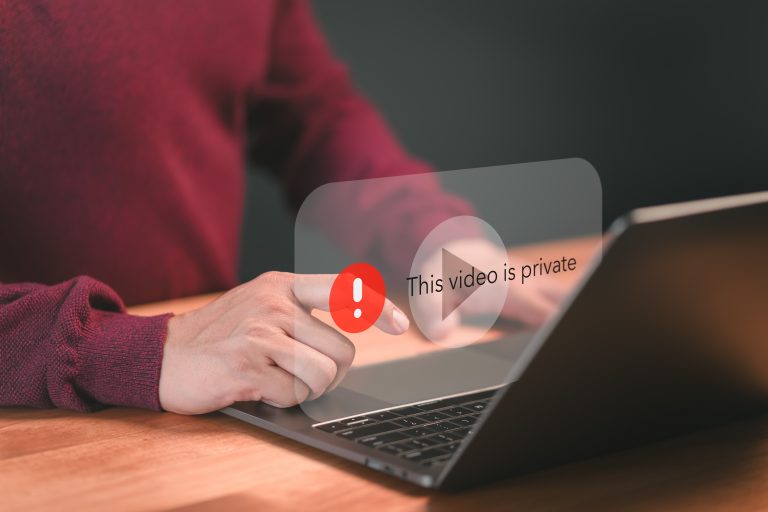Navigating Privacy Settings on Social Media Platforms
December 12, 2023Social media has become a ubiquitous aspect of daily life, making the management of privacy settings increasingly vital. This article…

In this day and age of increasing technological capabilities, it’s important to protect your address and keep your location private. With a variety of technologies, such as GPS coordinates, Google Maps, mobile phones, and web tools, it’s easy for someone to track down your current address or even your past address. In this article, we’ll explore the best ways to use technology to protect your address and keep your location a secret.
GPS jammers are devices that generate signals which can overpower, jam, or confuse the GPS receivers in order to protect your physical address against tracking. Though they are illegal to operate in most countries and jurisdictions, they can be used as a form of protection. GPS jammers build up enough radio frequencies which interfere with a GPS signal to hide the location of an individual. This is valuable for people who may have information that is sensitive and need to protect their location from being tracked. These devices create false signals which cause the receiver to lose its coordinates when it attempts to pinpoint the position, hence clouding and camouflaging the exact physical location from eavesdroppers. With a range of up to 10 meters (30 ft) from its source, it prevents any type of data transmission from receiving a proper signal. This can help protect you against private investigators, mobile phone companies, and other people trying to find out your exact location at any time.
A Virtual Private Network (VPN) is one of the most effective methods for shielding your online activities and protecting your address from hackers. A VPN creates a tunnel through which your data passes securely and anonymously, making it virtually impossible for anyone to intercept, track or monitor your online activity. When choosing a VPN, it’s important to research the provider’s logging policy– this will help you determine how they handle and store user data. The best VPNs have strict no-logging policies that ensure none of your information is stored on their servers or shared with third parties without permission. Additionally, look for those with strong encryption protocols that keep your data well-protected during transmission. Using a VPN not only helps you safeguard your sensitive address information but can also unblock access to geo-restricted content such as streaming services. Many providers also allow up to 5 simultaneous connections so all of your devices can remain protected at once!
Using a Virtual Private Network (VPN) can ensure that all of your online activities are routed through an anonymous, secure server. This means that your location and IP address can be disguised and cannot be tracked. The encryption technology used by VPNs also makes it nearly impossible for anyone to access the messages or data you are sending and receiving, giving you complete privacy and anonymity when browsing the web. Additionally, most VPN services offer software that prevents malicious websites from accessing your computer’s sensitive information. The best way to protect yourself is to use a reputable VPN provider with strong security measures in place. Choose one that features specialized servers designed specifically with your location in mind, as well as advanced features like built-in malware protection, data encryption, and DNS leak prevention. A reliable service will also have regular system updates to keep you safe from emerging threats as they occur.
Social media can be a great way to stay connected with friends, family, and colleagues. It also offers a very convenient way to share your location and address with others. However, in some situations, you may want more privacy and keep your address confidential. In this article, we will discuss some strategies for hiding your address on social media, so your current address and location remain private.
Changing your privacy settings on social media sites is an important step in ensuring that others do not view your address. These are usually found in a “privacy” setting, but may be listed under a different name depending on what platform you are using. Most platforms also give you the option to hide your profile from being found in a general search. If a person knows your username or email, they will still be able to view your profile in some cases, but changing this setting is still helpful for attempting to keep personal information private. When making changes to these settings, it’s important to read the description of each one so that you are aware of exactly who will be able to see what content once the changes have been implemented. Most sites have preset settings for convenience and security that can easily be switched back and forth depending on who is viewing or interacting with you at different times. Additionally, if you provide any personal information like an address on social media platforms, make sure it doesn’t appear anywhere else online; otherwise, someone might be able to find you by searching through other websites or databases.
Using a fake address generator can be an effective way to hide your address from social media sites. Many generators allow you to create a random address, select the city and state, and input other relevant information. Fake addresses do not get put into the postal system, so it is important to make sure that any online purchases use the proper shipping address instead of the fake one. Because some social media sites may require a valid address in order to complete registration, using a fake one can help protect your privacy. It is still important to take other security steps such as limiting personal information on profiles and only adding people you know. In addition to using these services for social media sites, there are some specific reasons why you may want another unique and modern option for an address such as renting or accessing shared workspace or receiving packages from companies like Amazon which don’t deliver for certain zip codes even if you provide them with your actual home address. With these new options available, generating a fake yet valid address takes seconds and you can rest assured knowing that your private information remains safe.
Protecting your privacy on social media begins with properly hiding your location. Geotagging (the practice of adding geographic information like city, county, or state information to digital content) should be disabled on all of your devices to prevent this data from getting into the wrong hands and giving criminals access to where you live. To protect yourself further, you should also make sure any profile photos and posts don’t give away any specific location. This includes anything that could indicate where you live or may be located away from homes, such as pictures of houses, landmarks, and parks in the area. If necessary, always blur any locations or landmarks included in photos posted on social media. You can also take steps to ensure your home address isn’t visible to the public by reviewing all of your social media accounts for address information. Be sure to remove any street addresses in profiles or posts that could give away your exact location. It’s also a good idea to contact companies that might list this information publicly so they can update their records accordingly. Finally, it’s important to consider how certain apps can use access to your location services in order to provide accurate results or personalized recommendations. Read the app’s terms and conditions carefully before permitting access so you know what data is being shared and with whom it is being shared — if it doesn’t provide value to you then disable access altogether or delete the app completely if necessary. This will help ensure no unnecessary data is shared without your knowledge.
When it comes to keeping your address private, there are several methods you can use. Whether you are looking for a new address or want to maintain your current address, there are methods for both scenarios. From searching for your address online to using various web tools to protect your data, it is important to understand all the options available to maintain your privacy. Let’s explore all the ways you can keep your address private.
Avoid giving out your address to anyone you don’t trust in the public. This includes people you might meet on social media, online forums, and comment sections. Even if you’re comfortable sharing some information about yourself, think twice before revealing where you live. When it comes to forms that request your address, be selective with the ones that you fill out. If a form needs this kind of information to process or verify your identity or payment details, only give them the necessary information to complete the transaction. Make sure that the company is legitimate and has a secure website before submitting any sensitive data. Be aware of any potential scams related to online address verification systems or types of verification services (particularly those affiliated with Visa). Double-check any ‘contact us’ details and website addresses provided on those pages before providing additional personal data.
Using a mailbox is one of the most effective ways to protect your privacy from unscrupulous marketers, identity thieves, and others. Renting a mailbox from the local post office or private mail service will provide you with an additional layer of privacy by separating your mailing address from your residence. Your mail can be stored in a secure location and can be accessed only with proof of personal identification. All mail is handled on your behalf ensuring that sensitive documents, such as financial statements and government documents, remain safe until collected. A mailbox service also makes it possible to collect parcels and other deliveries if you are not at home when they arrive. The cost of renting a mailbox varies based on the size and duration of the rental, as well as any additional services desired.
Keeping your address private is an important step in safeguarding yourself, your home, and your family. When giving out your address online or over the phone, be wary of who you are giving it to, and never give out full address information to parties you do not know or trust. You should ask yourself if the person or organization has a legitimate need for your personal address before giving it out. In addition to being careful about whom you share your address with, there are other proactive steps that can be taken to maintain a safe level of privacy surrounding your home. Many households purchase street signs containing their surname or initials instead of posting the numerical address of the residence on their mailbox and in front of their home. Also, some people opt for post office boxes as a means an alternative way of receiving mail rather than getting mail delivered directly to their residence. Utilizing a post office box eliminates unwanted visitors from having direct access to where you live. Furthermore, hiding away house keys on nearby premises is discouraged as much as possible; this should instead be replaced with smart technology such as password-protected locks which add an extra layer of security for your belongings and family members living in that dwelling. It is possible in some localities to register with police departments and other municipal organizations so that they have information regarding who lives at what address without providing all details regarding specific inhabitants. Nowadays it is extremely easy for strangers to find someone’s physical location even if they just know part of the address – this can sometimes lead to malicious investigation no matter how limited information visited parties may have had in “gathering” evidence. Always be mindful when giving out personal information online or over phone calls and remember that safety should always come first!
Finding someone else’s address can be a difficult process. There are many methods to locate a person’s exact address, but each has its own advantages and disadvantages. Whether you’re looking to find a current address, street address, exact address, current location, or past address, there are plenty of tools available to help you do that. In this article, we will explore the different methods and tools to help you find somebody’s address.
Using a reverse address lookup tool is one of the easiest ways to find someone else’s address. Reverse lookups use public records databases and search engines, allowing you to enter a person’s name and then receive the associated address information. These tools are great if you have an old friend or distant family member whose current whereabouts remain unknown. Keep in mind that using a reverse lookup tool requires accurate information about the person you’re trying to locate. The more details you can provide, such as first and last name, birth date, and current city of residence (if known), will greatly increase your chances of receiving accurate results from the lookup tool. While taking extra steps such as searching for variations on spelling or maiden names may be necessary in some cases, keep in mind that missing even one minor detail could result in confused addresses or false negatives—in other words, no results at all! Reverse lookup searches can be conducted through specialized services like Intelius or True People Search for free (or for a nominal cost in exchange for additional details such as phone numbers). Otherwise, various other online databases exist where you might be able to find what you need using a paid subscription service. Regardless of which route you choose to follow, use caution when providing any personal details during these searches—in some cases, scammers have been known to steal credit card information after people input it into relatively unreliable sources online—both popular search engines and obscure databases alike.
Searching public records can help you find someone else’s address. This includes official records such as birth, marriage, death, and criminal records; court documents such as divorce decrees; and property ownership files. Each type of record has a different source and level of availability. Birth certificates are generated by state and county officials, while marriage records are created by the church or other wedding officiant. Property ownership records may exist in local, county, or state databases, while criminal court information is generally available to the public at the jurisdiction level. Different procedures must be followed in order to gain access to each type of public record. You might need to present identification when requesting a birth certificate from your local health department, for example, or visit a local courthouse in order to view court documents. The specific requirements for retrieving public information can vary widely depending on the jurisdiction. Many public records are also now available online through the state, county, or national databases – though you may need an account with access credentials in order to view them. There may also be fees associated with viewing certain documents online which can range from minimal to substantial amounts depending on the state’s regulations concerning digital reproductions of their materials.
Using a people finder service is one of the most popular ways to find someone else’s address. The service lets you search by name and location, and you can provide more specific information as needed. For example, if you know their full name and approximate age, this can narrow your search significantly. People finder services have access to records from public databases, contact directories, real estate listings, and other sources. These records vary in accuracy and some may be outdated; however, with the right description of who you are looking for, there’s a good chance that you can find someone else’s address with relative ease. Although most people finder services require a fee for access to their database, some offer general address lookups for free. You may also be able to access specialized records such as employment or financial documents for an additional fee.
Regardless of why you want to keep your address private, it is important to take measures to protect your address and personal information. There are many strategies that can help you take back control of who has access to your personal data and keep it out of the wrong hands. Using a Virtual Mailbox or PO Box allows you to use another address for packages and mail correspondence while forwarding important documents, bills, and letters directly to your home address. This not only keeps your main address private but also ensures that all incoming mail is effectively screened before delivery. Hiding or deleting online personal information is also a great way to ensure that others are not able to gather information about you from the internet. Be sure that social media profiles, job boards, and any other public websites have accurate privacy settings in place so that you can easily control who has access to your data. Finally, if you’re concerned about someone finding out where you live by searching official records like real estate transaction databases or tax filings, there are options available such as property trusts and business entities depending on whether you rent or own a property. These methods allow a third party entity — such as an attorney —to separate yourself from any public records associated with an unlisted street address in numerous ways including using doormen/security personnel for extra protection.

Social media has become a ubiquitous aspect of daily life, making the management of privacy settings increasingly vital. This article…

Facebook, with its 2.85 billion users, is a major player in the digital world. Despite its popularity, concerns about data…

The online reputation of a small business is a critical factor that can greatly influence its success. With 87% of…